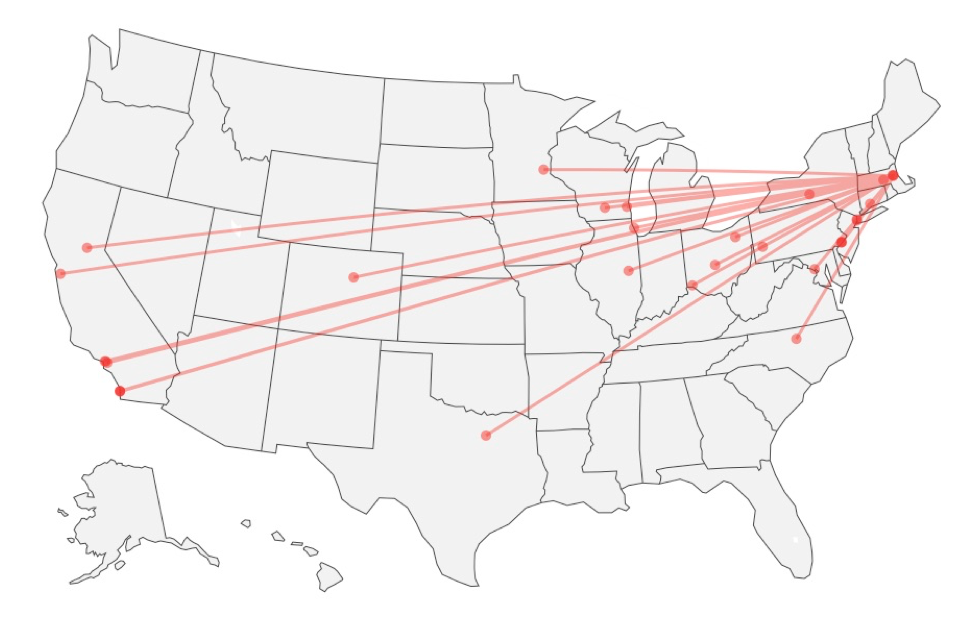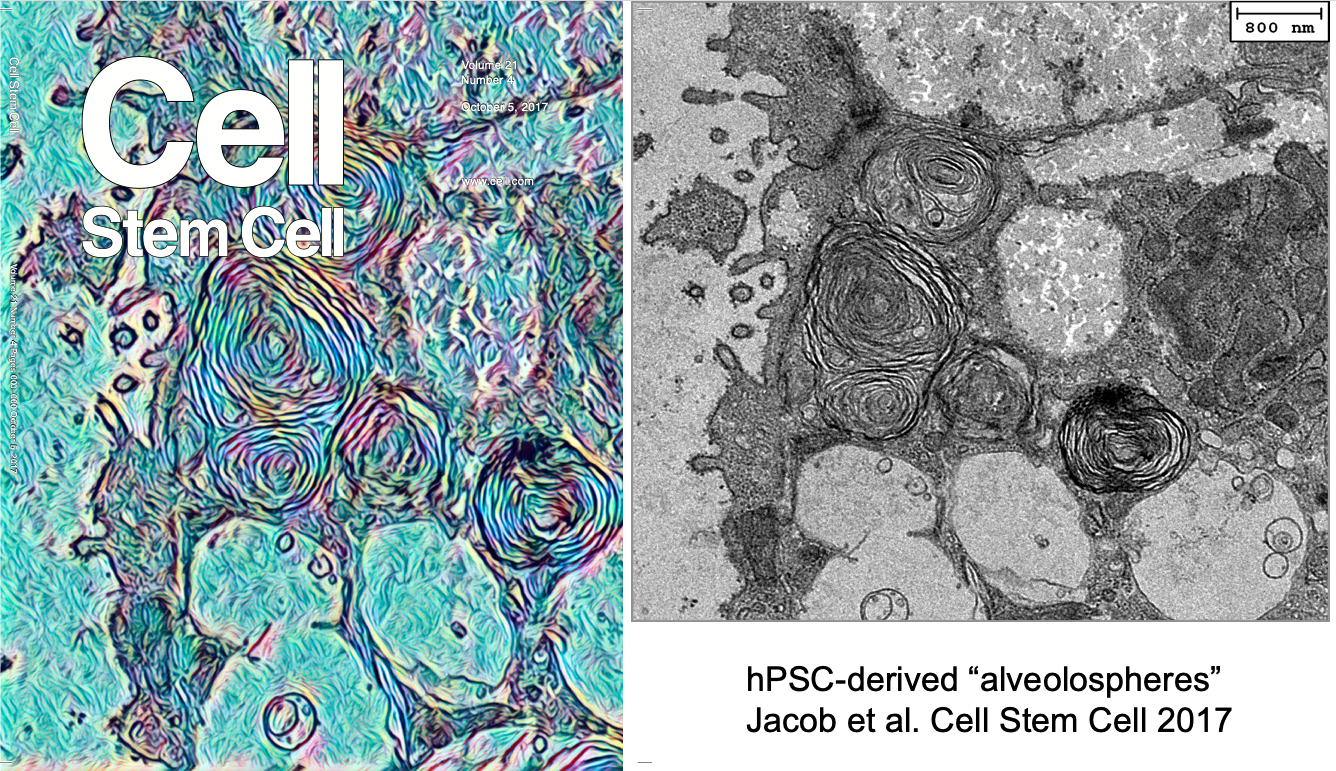Requesting our cells
We promote an approach called “Open Source Biology” where we share our knowledge, reagents, data, protocols, and especially our cells without restriction or exclusivity. A defining property of stem cells is indefinite self-renewal capacity — use them and we’ll make more! Below are all the details and links to protocols you’ll need to request and work with our cells! If you like them, feel free to make a donation here.
How to initiate a request and MTA to receive our cells and organoids

Once you know the specific name of your chosen line, and you locate the line you want to receive from our iPSC bank catalogue webpage, you can begin the request process and initiate MTA paperwork by following these steps:
- From the iPSC bank catalogue webpage, first create an account by clicking the Login tab (top right of main page), and follow the prompts and guidelines outlined on each page. Order status updates may be accessed through your “My Account” Orders History tab.
- Please contact us at mfjames@bu.edu if you have any questions about our catalog, pricing structure, or ordering process.
- Further information about our catalogue is available here.
- To prepare to receive our cells, you can freely download all our detailed protocols needed for culturing them here.
- If you present or publish with our cells, please acknowledge us and our NHLBI resource sharing grant: N01: 75N92025R00004
Fees:
- Archiving, maintenance, and sharing costs are largely supported by an NHLBI resources sharing grant, N01: 75N92025R00004. As required by our MTA, you must acknowledge this grant number in any publications resulting from these cells or organoids. We charge only a small fee of $950 per vial for undifferentiated iPSCs.
- For most published iPSC- or ESC-derived organoids or differentiated cell lineages, we charge academic labs $1250 for each frozen vial or live cell “droplet” (approximately 300K cells per droplet) in your first shipment. Since these cells can be expanded in your own lab indefinitely, subsequent shipment requests for the same clone or requests for unpublished lines involve a higher pricing structure negotiated on an individual basis with consultation encouraged to ensure you are able to culture them to meet your needs.
- Are cells available to industry colleagues? Yes, most – but not all – of our lines are consented for industry sharing. Please email us for further information and an individualized pricing structure that depends on whether you need an MTA, license, or sponsored research agreement.
Undifferentiated iPSCs
If you and your lab are interested in receiving frozen vials of undifferentiated iPSCs from the CReM, please see our CReM iPSC bank catalogue. Once you locate the line you want to received, you can begin the request process and initiate MTA paperwork by following the section above on: “How to initiate a request and MTA for receiving our cells and organoids”, Further information about our catalogue is available here.

Organoids and lung lineages
We currently have the following iPSC-derived lung lineages that can be shared as already differentiated cells for passaging and experiments in your lab. To request any of these please follow the instructions above (under how to initiate a request and MTA to receive our cells.)
- iAT2s: we make human iPSC-derived lung alveolar epithelial type 2 cells (“iAT2s”, also known as “iAEC2s”) shareable as live 3D cell culture spheres, shipped at room temperatue. Note: these cells do not freeze/thaw reliably and thus need to be shipped fresh each time or maintained by passaging in your lab with our protocols accessible here. Our 2 most popular lines for those requesting normal iAT2s are: BU3 NGST (a line that carries an NKX2-1GFP reporter “NG” and a SFTPCtdTomato reporter “ST”), published here; and SPC2-ST-B2 iPSCs (carries just the SFTPCtdTomato reporter), published here. See our Nature Protocols iAT2 paper as well as FAQs below for more detailed information.
- iBCs: the Hawkins Lab in the CReM makes human iPSC-derived basal cells (iBCs) grown as epithelial spheres in 3D cultures , which can be shipped as either frozen vials or live cell 3D cultures. The Kotton Lab makes mouse versions of iBCs. Both human and mouse iBCs can be reliably freeze/thawed and maintained by passaging in your lab with our protocols, accessible here. Our most useful human iBC line is BU3 NGPT, which carries NKX2-1GFP and TP63tdtomato reporters. These reporters allow monitoring of the iBC cell state, Published here. See FAQs below for more detailed iBC information.
- iLM: we make mouse iPSC-derived primordial lung-specific mesenchyme, as published here.
Once you locate the line you want to receive, you can begin the request process and initiate MTA paperwork by following the section above on: “How to initiate a request and MTA for receiving our cells and organoids”, Further information about our catalogue is available here. See FAQs below for specific information about each specific lineage.
If you need more information or have questions, you can contact us by email to Dr. James, with an inquiry. Please include the following information in your email:
- “Requesting Cells” in the subject line of the email
- Full name
- Contact Information (tel)
- Requested cell type
- Shipping Address
- Fedex Account Number
- Purpose of experiment
If you would like to make a donation to financially support our cell sharing mission, click here!
FAQs (Frequently Asked Questions):
Is my favorite gene expressed in iAT2s?
See figure 7 of our prior iAT2 paper to get a quick sense of characterization of the iAT2 cells. We also have a webpage set up to make it easy for you to assess the expression of any gene you like in these iAT2s so you know exactly what we’ll be shipping you:
- View the SPRING plot (from figure 7; scRNA Seq for our human iPSC-derived AEC2 that are 114 days in culture) — and search for your favorite gene!
Do I have the reagents I’ll need, and do you have detailed protocols for culturing the cells?
Yes, we have a link here to our protocols webpage with detailed protocols and reagents that your team will need for receiving and growing the cells successfully.
Do I need to initiate an MTA to receive these cells?
Yes, please see the first section above (How to initiate a request and MTA to receive our cells and organoids) to set up an account to begin your request along with your MTA paperwork.
Is co-authorship required when publishing with these cells or organoids?
No. As stated in our MTA, you are required to acknowledge the NIH resource sharing grant that helps to defray and minimize the costs of sharing these cells with you, please add to your acknowledgements section of your paper: “Human iPSCs (or their derivatives) were received from the Center for Regenerative Medicine of Boston University and Boston Medical Center, supported by NIH/NHLBI resource sharing grant N01: 75N92025R00004.” Of course we are also happy to collaborate with you if you want more input than simply shipping cells, in which case we’ll co-authorship up to your best judgement.
Can I review the IRB-approved consent form used for the “BU3” lines?
Yes, please email our research coordinator, Shumin Guan (sguan at bu dot edu), to receive a de-identified copy of the consent form for “BU3” or any of our other lines that have the initials “BU” in the clone name. Be sure to specify the clone name when you email us!
I’m new to iPSC culture work and you have so many lines. How do I get started and which lines should I request?
For iAT2s, we suggest we ship you cells from the Kotton Lab that have been differentiated into human iPSC-derived alveolar type 2 cells (iAT2s). For iAT2s, you can start with BU3 NGST or SPC2-ST-B2 cells… whichever line is available first: both contain an SFTPCtdTomato fluorescent reporter. We can share these with you as ready-made live iAT2s (alveolospheres) that are predominantly tdTomato+. You can receive them as live cultures (they ship well at room temperature) and you can then serially passage them in your own lab in 3D Matrigel cultures. iAT2s do not freeze/thaw well and so will be shipped to you live.
For iBCs, the BU3 NGPT line can now be requested through the iPSC Catalog.
To summarize again the key information and clone names for our three most popular lines:
For iAT2s, our most popular lines are:
- BU3 NGST iPSCs (a line that carries an NKX2-1GFP reporter “NG” and a SFTPCtdTomato reporter “ST”). Published here.
- SPC2-ST-B2 iPSCs (carries just the SFTPCtdTomato reporter.) Published here.
For iBCs, our most popular line is:
- BU3 NGPT. Published here.